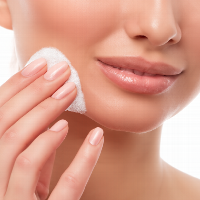The Rise of Vegan, Eco-Friendly, and Skin-Kind Cosmetics
In recent years, the beauty industry has seen a transformative shift towards more ethical, sustainable, and skin-conscious products. As consumers become more mindful of what they apply to their skin and the impact their choices have on the planet, vegan, eco-friendly, and gentle cosmetics have gained immense popularity. Let's dive into what makes these products stand out and why they're worth considering for your beauty routine.
What Does Vegan Mean in Cosmetics?
When a cosmetic product is labelled vegan, it means it's free from any animal-derived ingredients. Common animal-based components in traditional cosmetics include beeswax, lanolin, carmine, and collagen. Vegan products replace these with plant-based or synthetic alternatives, making them suitable for those who prioritize animal welfare or follow a vegan lifestyle.
One of the benefits of vegan cosmetics is that they often feature natural, plant-based ingredients that are rich in vitamins, antioxidants, and other nutrients beneficial for the skin. Additionally, vegan cosmetics reduce demand for animal exploitation in the beauty industry, making them a compassionate choice for ethical consumers. However, it's essential to check for certifications from trusted organizations like The Vegan Society or PETA to ensure the product's authenticity.
Eco-Friendly Beauty: What Sets It Apart?
Eco-friendly cosmetics prioritize sustainability at every stage—from sourcing ingredients to packaging. Here are some hallmarks of eco-conscious beauty products:
Sustainable Sourcing: Ingredients are harvested responsibly, often from renewable sources, without causing harm to ecosystems.
Minimal and Recyclable Packaging: Brands use materials like glass, aluminium, or biodegradable plastics to reduce waste.
Waterless Formulas: Some brands minimize water usage in their products, creating concentrated formulas like solid shampoos, bars, or powders.
Carbon Neutral Initiatives: Many eco-friendly companies offset their carbon emissions by investing in renewable energy or reforestation projects.
Cruelty-Free Practices: Eco-friendly brands often commit to ensuring no animals are harmed during testing or production.
By choosing eco-conscious products, you're not only caring for your skin but also helping to reduce the beauty industry's environmental footprint. Some companies even go a step further by partnering with organizations to clean up plastic waste or by planting trees for every purchase made.
Why Skin-Kind Cosmetics Matter
Gentle cosmetics prioritize skin health by avoiding harsh chemicals and irritants. Many conventional beauty products contain ingredients like parabens, sulphates, synthetic fragrances, and dyes that can cause sensitivity, breakouts, or long-term damage. Skin-kind cosmetics often:
Feature natural and organic ingredients.
Avoid potential allergens or irritants.
Focus on soothing and nourishing properties, making them ideal for sensitive or acne-prone skin.
Ingredients like aloe vera, chamomile, jojoba oil, and hyaluronic acid are common in skin-friendly formulations. They're designed to enhance your skin's natural barrier and provide hydration without clogging pores. Moreover, using skin-kind products can lead to long-term benefits such as improved texture, reduced redness, and a healthier complexion overall.
How to Transition to Ethical Beauty
Switching to vegan, eco-friendly, and skin-kind cosmetics doesn't have to be overwhelming. Here are some tips:
Start Small: Replace one product at a time, such as your moisturizer or lipstick.
Read Labels: Look for certifications like vegan, cruelty-free, and organic to ensure the product meets your standards.
Do Your Research: Follow beauty blogs, watch reviews, and check ingredient lists to find products that align with your values.
Support Local: Many smaller, artisan brands produce eco-conscious cosmetics that are kinder to the planet and often handmade with care.
Experiment: Don't be afraid to try new products or brands—many offer trial sizes, so you can test what works best for your skin before committing.
Reuse and Recycle: Look for brands that offer refillable packaging or recycling programs to further reduce waste.
Final Thoughts
Choosing vegan, eco-friendly, and skin-kind cosmetics is more than just a trend—it's a movement towards a more conscious way of living. By opting for products that align with these values, you're investing in your skin's health, supporting ethical practices, and contributing to a greener planet. The beauty of this shift is that you don't have to compromise on quality or performance to make a difference. Start small, stay informed, and embrace the journey towards ethical beauty.
As we collectively shift towards more sustainable practices, every choice matters. With thoughtful decisions, we can create a beauty routine that not only makes us look good but also feels good for the planet and all its inhabitants.




